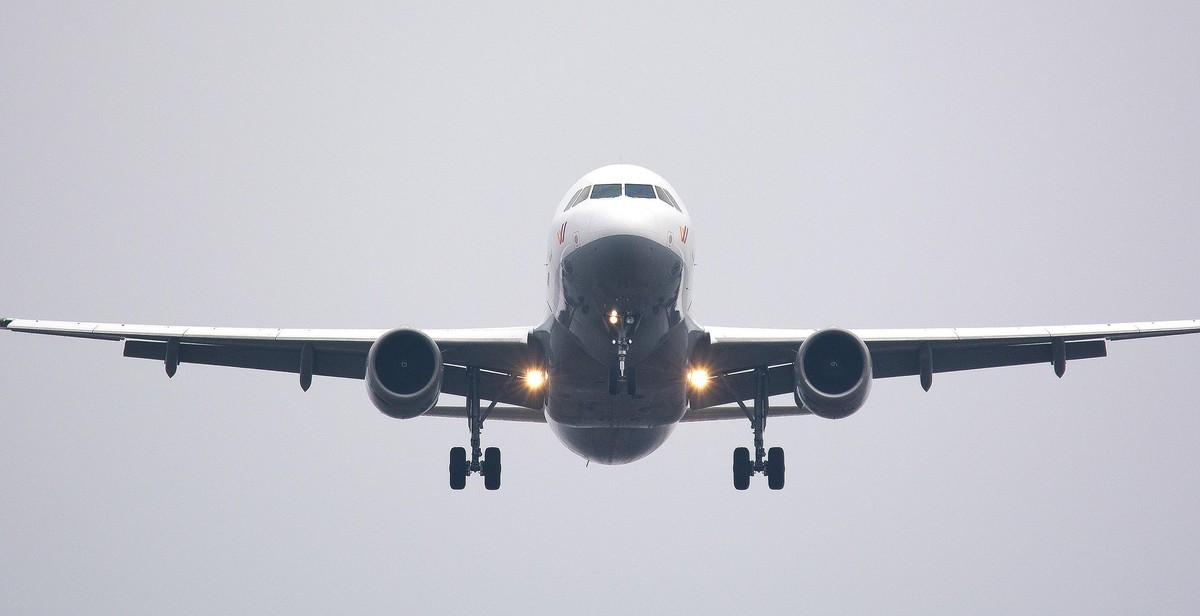Best Way to Transport Air Cargo In 2023
As the world becomes increasingly interconnected, the demand for air cargo transportation continues to rise. In fact, according to the International Air Transport Association (IATA), global air freight demand is expected to double over the next 20 years, with Asia-Pacific leading the growth. As a result, the air cargo industry is constantly evolving to meet the demands of consumers and businesses alike.
Challenges in Air Cargo Transportation
Despite the growth of the air cargo industry, there are several challenges that need to be addressed. These include:
- Capacity constraints
- Security concerns
- Environmental impact
- Cost efficiency
In order to meet these challenges, the industry is constantly seeking new technologies and innovations to improve efficiency, security, and sustainability.
The Future of Air Cargo Transportation
In 2023, the best way to transport air cargo will likely involve a combination of traditional methods and new technologies. For example, drones and autonomous vehicles may be used for last-mile delivery, while blockchain technology could improve supply chain transparency and security. Additionally, advancements in artificial intelligence and big data analytics could help optimize cargo routing and improve operational efficiency.
Overall, the air cargo industry is poised for significant growth and innovation in the coming years, and those who stay ahead of the curve will be well-positioned for success.

Advances in Air Cargo Transportation
The air cargo transportation industry has seen significant advancements in recent years. These advancements have been driven by the need for faster, more efficient, and secure cargo transportation. Two major areas that have seen significant improvements are new aircraft technology and improved cargo handling systems.
New Aircraft Technology
The introduction of new aircraft technology has revolutionized the air cargo industry. The use of larger planes with greater cargo capacity has significantly reduced transportation costs and increased efficiency. For instance, the Boeing 747-8F, which has a cargo capacity of 307,600 pounds, has become a popular choice for cargo transportation due to its large capacity and fuel efficiency. The Airbus A380F, which is currently in development, is expected to have a cargo capacity of over 150 tons, making it one of the largest cargo planes in the world. These new planes have allowed cargo companies to transport more goods in a single trip, reducing transportation time and costs.
Improved Cargo Handling Systems
Another area that has seen significant improvements is cargo handling systems. Modern cargo handling systems use automated technology to move cargo from the warehouse to the aircraft. This has significantly reduced the time it takes to load and unload cargo, and has also improved the safety and security of the cargo. Cargo handling systems now use advanced scanning technology to detect any potential security threats, ensuring that the cargo is transported safely and securely. Additionally, cargo handling systems have become more environmentally friendly, with many systems now using electric-powered equipment instead of fuel-powered equipment.
| Plane | Cargo Capacity | Range | Fuel Efficiency |
|---|---|---|---|
| Boeing 747-8F | 307,600 pounds | 8,000 nautical miles | 16% more fuel efficient than previous models |
| Airbus A380F | Over 150 tons | 8,000 nautical miles | 20% more fuel efficient than previous models |
Overall, the advancements in new aircraft technology and improved cargo handling systems have significantly improved the air cargo transportation industry. These advancements have allowed cargo companies to transport more goods in a single trip, reducing transportation time and costs, while also improving the safety and security of the cargo. As technology continues to evolve, we can expect even more improvements in the air cargo transportation industry in the future.

Air Cargo Transportation Modes
Air cargo transportation is a crucial aspect of global trade, enabling the movement of goods and products across the world. In 2023, the best way to transport air cargo will depend on the specific needs of the shipper. There are three main modes of air cargo transportation: freighters, belly cargo, and charter flights.
Freighters
Freighters are aircraft that are specifically designed for transporting cargo. They come in different sizes and capacities, ranging from small turboprops to large wide-body aircraft. Freighters are ideal for transporting large volumes of cargo, heavy and oversized goods, and hazardous materials. They offer high levels of security, flexibility, and reliability, as they operate on a fixed schedule and can access airports that are not served by passenger airlines. Freighters also offer dedicated cargo handling facilities, enabling faster and more efficient loading and unloading of cargo.
Belly Cargo
Belly cargo refers to the cargo that is transported in the belly of passenger aircraft. This mode of transportation is ideal for small and medium-sized shipments, perishable goods, and high-value products. Belly cargo is cost-effective, as it utilizes the unused cargo space in passenger aircraft. However, it is subject to capacity constraints, as the availability of belly cargo space depends on the passenger load factor and the route network of the airline. Belly cargo is also subject to security and safety regulations, as it shares the same aircraft with passengers.
Charter Flights
Charter flights are customized flights that are tailored to the specific needs of the shipper. They can be operated by both passenger and cargo airlines, depending on the type and volume of cargo. Charter flights offer maximum flexibility, as they can be scheduled at any time and to any destination. They are ideal for urgent and time-sensitive shipments, oversized and heavy cargo, and specialized products. Charter flights also offer high levels of security and confidentiality, as they are dedicated to a single shipper or a group of shippers.
| Transportation Mode | Advantages | Disadvantages |
|---|---|---|
| Freighters | High capacity, flexibility, reliability, security, and dedicated cargo handling facilities | High operating costs, limited route network, and subject to capacity constraints |
| Belly Cargo | Cost-effective, easy access to passenger routes, and suitable for small and medium-sized shipments | Subject to capacity constraints, security and safety regulations, and limited space for oversized and heavy cargo |
| Charter Flights | Maximum flexibility, customized solutions, high security and confidentiality, and ideal for urgent and specialized shipments | High costs, limited availability, and subject to weather and operational constraints |

Factors to Consider When Choosing an Air Cargo Transportation Service
When it comes to air cargo transportation, choosing the right service provider is crucial for the success of your business. Here are some factors to consider when making your decision:
Cost
One of the most important factors to consider when choosing an air cargo transportation service is cost. While it may be tempting to go for the cheapest option, it’s important to weigh the cost against the quality of service provided. Look for a service that offers competitive pricing without sacrificing quality.
Time-Sensitivity
If your cargo is time-sensitive, you need a service that can guarantee timely delivery. Look for a provider that has a good track record of delivering on time and has a reputation for reliability.
Security and Safety
Security and safety are of utmost importance when it comes to air cargo transportation. Look for a provider that has strict security protocols in place to ensure the safety of your cargo. This includes measures such as background checks on employees, secure facilities, and proper handling procedures.
Reliability
Reliability is key when it comes to air cargo transportation. You need a provider that you can trust to deliver your cargo safely and on time. Look for a provider with a proven track record of reliability and a reputation for excellent customer service.
| Cost | Time-Sensitivity | Security and Safety | Reliability | |
|---|---|---|---|---|
| Provider A | $$ | Excellent | Excellent | Excellent |
| Provider B | $ | Good | Good | Good |
| Provider C | $$$ | Excellent | Excellent | Good |
Use this comparison table to help you weigh the pros and cons of each provider based on the factors that are most important to your business.

Best Practices for Air Cargo Transportation in 2023
Transporting air cargo requires proper planning and execution to ensure that the cargo is delivered on time and in good condition. Here are some best practices that should be followed in 2023 to ensure efficient and effective air cargo transportation:
Proper Packaging and Labeling
Proper packaging and labeling of air cargo is crucial for safe and secure transportation. Cargo should be packaged in a way that ensures it is protected from damage during transportation. This can be achieved by using appropriate packaging materials such as strong cardboard boxes, bubble wrap, and foam padding. Additionally, cargo should be labeled correctly to ensure it is handled and transported to the correct destination. Labels should include information such as the destination address, weight, and handling instructions.
Effective Communication and Documentation
Effective communication and documentation are essential for successful air cargo transportation. Communication between shippers, carriers, and consignees should be clear and concise to avoid any misunderstandings or delays. Additionally, all necessary documentation such as airway bills, customs declarations, and invoices should be completed accurately and submitted on time to avoid any legal or regulatory issues.
Collaboration with Service Providers
Collaboration with service providers such as freight forwarders, airlines, and ground handlers is crucial for the smooth transportation of air cargo. Shippers should work closely with their service providers to ensure that all necessary arrangements are made for the transportation of their cargo. This includes coordinating pick-up and delivery times, arranging for customs clearance, and ensuring that the cargo is properly handled and secured during transportation.
| Best Practices for Air Cargo Transportation in 2023 |
|---|
| Proper Packaging and Labeling |
| Effective Communication and Documentation |
| Collaboration with Service Providers |
By following these best practices, shippers can ensure that their air cargo is transported efficiently and effectively in 2023.

Conclusion
In conclusion, the air cargo industry is rapidly evolving with new technologies and innovations. The best way to transport air cargo in 2023 will depend on various factors such as the type of cargo, distance, and urgency. However, some of the most effective ways to transport air cargo in 2023 include:
- Using drones for last-mile delivery
- Optimizing air cargo networks with machine learning and AI
- Implementing sustainable practices to reduce carbon emissions
- Integrating blockchain technology for secure and transparent transactions
The adoption of these technologies and practices will not only improve the efficiency and speed of air cargo transport but also reduce costs and increase customer satisfaction. It is crucial for air cargo companies to stay up-to-date with the latest trends and innovations to remain competitive in the industry.
As we move towards 2023, we can expect to see more advancements in the air cargo industry, including the use of electric planes and hyperloop technology. These developments will further revolutionize the way air cargo is transported, making it faster, more efficient, and sustainable.
| Technologies and Innovations | Benefits |
|---|---|
| Drones | Last-mile delivery |
| Machine learning and AI | Optimized air cargo networks |
| Sustainable practices | Reduced carbon emissions |
| Blockchain technology | Secure and transparent transactions |
Overall, the future of air cargo transport looks promising, with new technologies and practices enhancing the industry’s efficiency and sustainability. It is up to air cargo companies to embrace these changes and stay ahead of the competition.

Leave a Reply